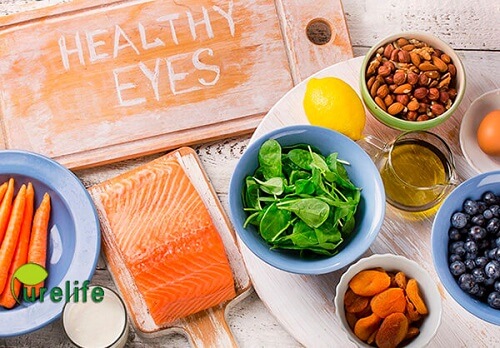Eye health supplements
With the development of electronic equipment and social media, our eyes have to do too much work every day, and also suffer too much blue light damage. But this also provides more opportunities for the eye health supplements market.

Eyesight problems are common to people of all ages. In the digital age, smartphones, iPad and computer are no longer scarce products. Blue light emitted by these electronic products is a big danger for people eye health, especially for young people. The survey data show that more and more young people are over-consuming their own eyes, and the trend of younger people with high myopia is getting worse.
Blue light during the day is beneficial to the body, it can increase attention, shorten reaction time, and improve mood. But in the evening, blue light disrupts the body’s circadian rhythm, inhibits melatonin secretion, and over-exposure will also increase eye fatigue.
In the past, the vision health industry targeted at age-related eye diseases only, including cataracts and AMD. But nowadays, consumers and professional doctors have been aware of the damage to eyesight caused by high-energy light too, which includes eye fatigue, eye soreness, headaches, and computer vision syndrome (CVS).
In general, age-related macular degeneration (AMD) and increased blue light are the two main factors driving the development of eye health supplements. Now let’s introduce some good supplements for your eye health :
Lutein and zeaxanthin
Lutein and zeaxanthin are the two most representative functional raw materials in the field of eye health. Lutein and zeaxanthin form a protective shield and prevents formation of cataracts as well as macular degeneration in the eyes. Intake of 10 mg of lutein and 2 mg of zeaxanthin daily helps maintain eye health.
Astaxanthin
Astaxanthin is an amazing antioxidant, it is able to cross the blood retinal barrier and exert antioxidant effects to stop retinal destruction by staving off light induced oxidation and protect photoreceptors from degeneration. Clinical studies have shown that Astaxanthin can reduce free radicals that cause inflammation in the eyes, relax ciliaris, and relieve eye fatigue.
In one study, 13 volunteers were given 5 mg of Astaxanthin daily for a month. After the test, 54 percent of the subjects said their eyes were no longer tense and sore, and only 8 percent of the control group said their symptoms had improved.
Vitamin
Vitamin A plays a crucial role in vision by maintaining a clear cornea, which is the outside covering of your eye. Severe vitamin A deficiency can lead to xerophthalmia, a serious condition that can result in blindness. In some studies, high amounts of vitamin A intake were associated with a reduced risk of cataracts and age-related macular degeneration.
Vitamin E, an antioxidant, may help protect your eyes against damaging free radicals. It’s used in a daily supplement called AREDS as a potential treatment for AMD, and high amounts in your diet may be associated with a reduced risk of cataracts.
Blueberry
Blueberry contains many powerful antioxidants, such as Vitamin A, C and E , anthocyanin etc. These nutrients are protective against oxidative damage especially for capillaries in the eye. Vitamin A and Vitamin C promote eye health by protecting the eye from free radicals and assists in a healthy inflammation response of the eye. Anthocyanin promotes the regeneration of rhodopsin by retinal cells thus improving vision and preventing myopia (near sightedness). Anthocyanins also help maintain the general eye health.


